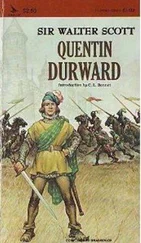Walter Scott - Letters on Demonology and Witchcraft
Здесь есть возможность читать онлайн «Walter Scott - Letters on Demonology and Witchcraft» весь текст электронной книги совершенно бесплатно (целиком полную версию без сокращений). В некоторых случаях можно слушать аудио, скачать через торрент в формате fb2 и присутствует краткое содержание. Жанр: История, на английском языке. Описание произведения, (предисловие) а так же отзывы посетителей доступны на портале библиотеки ЛибКат.
- Название:Letters on Demonology and Witchcraft
- Автор:
- Жанр:
- Год:неизвестен
- ISBN:нет данных
- Рейтинг книги:4 / 5. Голосов: 1
-
Избранное:Добавить в избранное
- Отзывы:
-
Ваша оценка:
- 80
- 1
- 2
- 3
- 4
- 5
Letters on Demonology and Witchcraft: краткое содержание, описание и аннотация
Предлагаем к чтению аннотацию, описание, краткое содержание или предисловие (зависит от того, что написал сам автор книги «Letters on Demonology and Witchcraft»). Если вы не нашли необходимую информацию о книге — напишите в комментариях, мы постараемся отыскать её.
Letters on Demonology and Witchcraft — читать онлайн бесплатно полную книгу (весь текст) целиком
Ниже представлен текст книги, разбитый по страницам. Система сохранения места последней прочитанной страницы, позволяет с удобством читать онлайн бесплатно книгу «Letters on Demonology and Witchcraft», без необходимости каждый раз заново искать на чём Вы остановились. Поставьте закладку, и сможете в любой момент перейти на страницу, на которой закончили чтение.
Интервал:
Закладка:
There is a remarkable story in the Eyrbiggia Saga ("Historia Eyranorum"), giving the result of such a controversy between two of these gifted women, one of whom was determined on discovering and putting to death the son of the other, named Katla, who in a brawl had cut off the hand of the daughter-in-law of Geirada. A party detached to avenge this wrong, by putting Oddo to death, returned deceived by the skill of his mother. They had found only Katla, they said, spinning flax from a large distaff. "Fools," said Geirada, "that distaff was the man you sought." They returned, seized the distaff, and burnt it. But this second time, the witch disguised her son under the appearance of a tame kid. A third time he was a hog, which grovelled among the ashes. The party returned yet again; augmented as one of Katla's maidens, who kept watch, informed her mistress, by one in a blue mantle. "Alas!" said Katla, "it is the sorceress Geirada, against whom spells avail not." Accordingly, the hostile party, entering for the fourth time, seized on the object of their animosity, and put him to death. [15] [15] Eyrbiggia Saga, in "Northern Antiquities."
This species of witchcraft is well known in Scotland as the glamour, or deceptio visus , and was supposed to be a special attribute of the race of Gipsies.
Neither are those prophetesses to be forgotten, so much honoured among the German tribes, that, as we are assured by Tacitus, they rose to the highest rank in their councils, by their supposed supernatural knowledge, and even obtained a share in the direction of their armies. This peculiarity in the habits of the North was so general, that it was no unusual thing to see females, from respect to their supposed views into futurity, and the degree of divine inspiration which was vouchsafed to them, arise to the degree of HAXA, or chief priestess, from which comes the word Hexe , now universally used for a witch; a circumstance which plainly shows that the mythological system of the ancient natives of the North had given to the modern language an appropriate word for distinguishing those females who had intercourse with the spiritual world. [16] [16] It may be worth while to notice that the word Haxa is still used in Scotland in its sense of a druidess, or chief priestess, to distinguish the places where such females exercised their ritual. There is a species of small intrenchment on the western descent of the Eildon hills, which Mr. Milne, in his account of the parish of Melrose, drawn up about eighty years ago, says, was denominated Bourjo , a word of unknown derivation, by which the place is still known. Here an universal and subsisting tradition bore that human sacrifices were of yore offered, while the people assisting could behold the ceremony from the elevation of the glacis which slopes inward. With this place of sacrifice communicated a path, still discernible, called the Haxell-gate , leading to a small glen or narrow valley called the Haxellcleuch —both which words are probably derived from the Haxa or chief priestess of the pagans.
It is undeniable that these Pythonesses were held in high respect while the pagan religion lasted; but for that very reason they became odious so soon as the tribe was converted to Christianity. They were, of course, if they pretended to retain their influence, either despised as impostors or feared as sorceresses; and the more that, in particular instances, they became dreaded for their power, the more they were detested, under the conviction that they derived it from the enemy of man. The deities of the northern heathens underwent a similar metamorphosis, resembling that proposed by Drawcansir in the "Rehearsal," who threatens "to make a god subscribe himself a devil."
The warriors of the North received this new impression concerning the influence of their deities, and the source from which it was derived, with the more indifference, as their worship, when their mythology was most generally established, was never of a very reverential or devotional character. Their idea of their own merely human prowess was so high, that the champions made it their boast, as we have already hinted, they would not give way in fight even to the immortal gods themselves. Such, we learn from Cæsar, was the idea of the Germans concerning the Suevi, or Swabians, a tribe to whom the others yielded the palm of valour; and many individual stories are told in the Sagas concerning bold champions, who had fought, not only with the sorcerers, but with the demigods of the system, and come off unharmed, if not victorious, in the contest. Hother, for example, encountered the god Thor in battle, as Diomede, in the Iliad, engages with Mars, and with like success. Bartholsine [17] [17] "De causis contemptæ necis," lib. i. cap 6.
gives us repeated examples of the same kind. "Know this," said Kiartan to Olaus Trigguasen, "that I believe neither in idols nor demons. I have travelled through various strange countries, and have encountered many giants and monsters, and have never been conquered by them; I therefore put my sole trust in my own strength of body and courage of soul." Another yet more broad answer was made to St. Olaus, King of Norway, by Gaukater. "I am neither Pagan nor Christian. My comrades and I profess no other religion than a perfect confidence in our own strength and invincibility in battle." Such chieftains were of the sect of Mezentius—
"Dextra mihi Deus, et telum, quod missile libro,
Nunc adsint!" [18] [18] "Æneid," lib. x. line 773.
And we cannot wonder that champions of such a character, careless of their gods while yet acknowledged as such, readily regarded them as demons after their conversion to Christianity.
To incur the highest extremity of danger became accounted a proof of that insuperable valour for which every Northman desired to be famed, and their annals afford numerous instances of encounters with ghosts, witches, furies, and fiends, whom the Kiempé, or champions, compelled to submit to their mere mortal strength, and yield to their service the weapons or other treasures which they guarded in their tombs.
The Norsemen were the more prone to these superstitions, because it was a favourite fancy of theirs that, in many instances, the change from life to death altered the temper of the human spirit from benignant to malevolent; or perhaps, that when the soul left the body, its departure was occasionally supplied by a wicked demon, who took the opportunity to enter and occupy its late habitation.
Upon such a supposition the wild fiction that follows is probably grounded; which, extravagant as it is, possesses something striking to the imagination. Saxo Grammaticus tells us of the fame of two Norse princes or chiefs, who had formed what was called a brotherhood in arms, implying not only the firmest friendship and constant support during all the adventures which they should undertake in life, but binding them by a solemn compact, that after the death of either, the survivor should descend alive into the sepulchre of his brother-in-arms, and consent to be buried alongst with him. The task of fulfilling this dreadful compact fell upon Asmund, his companion, Assueit, having been slain in battle. The tomb was formed after the ancient northern custom in what was called the age of hills, that is, when it was usual to bury persons of distinguished merit or rank on some conspicuous spot, which was crowned with a mound. With this purpose a deep narrow vault was constructed, to be the apartment of the future tomb over which the sepulchral heap was to be piled. Here they deposited arms, trophies, poured forth, perhaps, the blood of victims, introduced into the tomb the war-horses of the champions, and when these rites had been duly paid, the body of Assueit was placed in the dark and narrow house, while his faithful brother-in-arms entered and sat down by the corpse, without a word or look which testified regret or unwillingness to fulfil his fearful engagement. The soldiers who had witnessed this singular interment of the dead and living, rolled a huge stone to the mouth of the tomb, and piled so much earth and stones above the spot as made a mound visible from a great distance, and then, with loud lamentation for the loss of such undaunted leaders, they dispersed themselves like a flock which has lost its shepherd.
Читать дальшеИнтервал:
Закладка:
Похожие книги на «Letters on Demonology and Witchcraft»
Представляем Вашему вниманию похожие книги на «Letters on Demonology and Witchcraft» списком для выбора. Мы отобрали схожую по названию и смыслу литературу в надежде предоставить читателям больше вариантов отыскать новые, интересные, ещё непрочитанные произведения.
Обсуждение, отзывы о книге «Letters on Demonology and Witchcraft» и просто собственные мнения читателей. Оставьте ваши комментарии, напишите, что Вы думаете о произведении, его смысле или главных героях. Укажите что конкретно понравилось, а что нет, и почему Вы так считаете.









